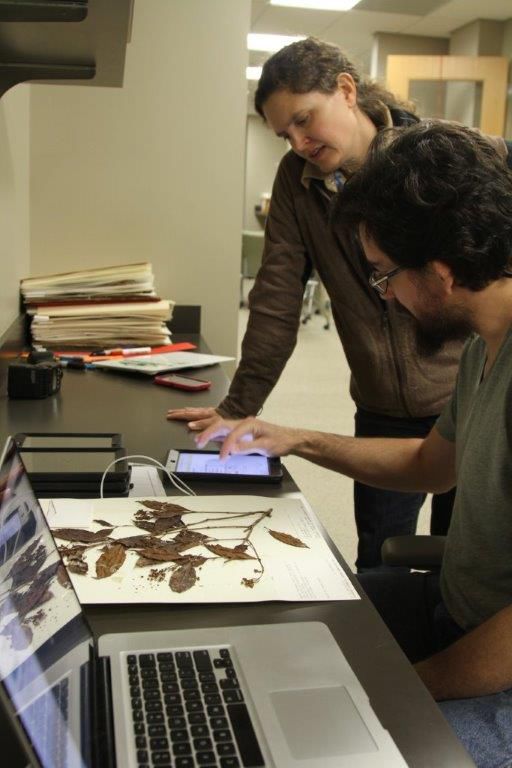A little bit of Louisiana is coming to Fort Worth.
The Botanical Research Institute of Texas (BRIT) has been selected by the University of Louisiana at Monroe (ULM) to receive its herbarium of around half a million dried and preserved plant specimens. The move will occur in late July and early August and will place BRIT’s herbarium in the top 10 for specimens housed in the United States, BRIT said.
“Orphaned herbarium collections such as this one are just the type of acquisitions we had in mind as our headquarters building was being designed. Safeguarding and protecting plant specimens for research and education is our Institute’s mission,” Ed Schneider, executive director and president of BRIT, said in a news release.
BRIT said the ULM collection is regarded as the Louisiana’s most complete record of plants and has samples from 99 percent of Louisiana vascular flora species. The collection also contains samples from the surrounding areas such as Texas, Mississippi and Arkansas.
Plant specimens were collected by ULM botany professor Dr. R. Dale Thomas, who is considered the most prolific plant collector of all time. His students and a noted expert on grasses and Cajun Prairie remnants, Dr. Charles Allen, also contributed extensively to collection.
The ULM herbarium began participating in the CyberFlora Louisiana project in 2009 by beginning the digitization of the collection which the news release says BRIT will continue.
The Washington Post (https://www.washingtonpost.com/news/speaking-of-science/wp/2017/03/29/a-university-is-eliminating-its-science-collection-to-expand-a-running-track/?utm_term=.8456ea4d0317) said the herbarium was forced to find a new home because the university wanted to expand its track and field facilities. If another home was not found before the end of July, ULM told the curators, the collection would be destroyed.
This comes at a time when many natural history collections are facing budget cuts, the Post said. The article cites a 2015 Nature article (http://www.nature.com/news/plant-collections-left-in-the-cold-by-cuts-1.17875) that counts more than 100 herbaria in North America as “lost” since 1997.
Housing the collection in the BRIT herbarium means it remains a scientific resource capable of conserving Louisiana’s natural heritage. This will help protect a portion of the natural specimens from unique environmental threats in Louisiana, including extreme weather, land subsidence, wetlands loss and ocean acidification, according to the news release.
The researchers at ULM will not lose access to the herbarium collection. Schneider said the collection will be open to researchers globally. “It’s just that they’ll have to come to Fort Worth rather than Monroe, Louisiana,” he said.
Researchers are not the only benefactors. BRIT, the City of Fort Worth and the Fort Worth Botanic Garden have joined forces to provide the community with educational programming and volunteer services at the Garden, Schneider said.
“People who come to the Garden will now have access to BRIT. They can see this magnificent herbarium that we have,” he said.
Before the plant specimens can be placed in the herbarium, they will be shipped in temperature-controlled trailers capable of reaching – 20 F, said the news release. After arriving in Fort Worth, the plants will remain in the freezers for seven more days to make sure there are no threats to the collection from insects.
A BRIT spokesman said the nonprofit organization was chosen due to its specialization in southeastern U.S. collections, its ability to care and protect the plants, its mission of taking in orphaned collections and the institution’s space. The BRIT herbarium is in a LEED platinum building and is “an ideal environment almost unmatched by other facilities around the country” said Schneider.
With the addition of the ULM herbarium, the BRIT herbarium will contain around 1.4 million specimens, said a BRIT spokesman.
“I’m just very proud that BRIT is able to provide this service and that it will strengthen the visibility of BRIT among the botanical world,” said Schneider. “I think the citizens of Fort Worth should take great pride that BRIT, as part of the cultural district in its own right, is in the top tier.”
Botanical Research Institute of Texas
1700 University Drive Fort Worth, Texas 76107-3400
(817) 332-4441
Open Tuesday through Friday 10 a.m. to 4 p.m.
brit.org
More on herbaria in North America: goo.gl/oksGXH








